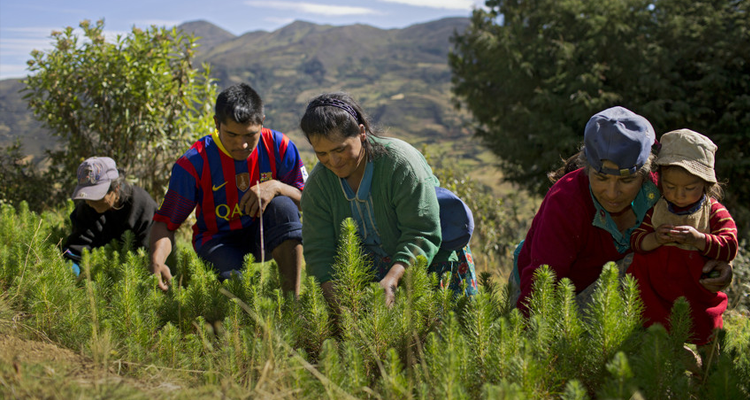Reducing the use of highly toxic pesticides and offering relevant information about non-chemical pest control alternatives is key in a world where around two million tons of pesticides are consumed every year and where around 25 million agricultural workers experience unintentional pesticide poisonings annually.
The new app, called Pesticides and Alternatives, brings a wealth of scientific knowledge directly to the phones of farmers and plantation managers in developing countries so they can identify the least toxic pest control methods for their crop and typical pests. It contains information on non-chemical pest control alternatives from agricultural knowledge resource CABI for 2700 pests and diseases.
Farmers can also search for and get to know the pesticide restrictions of nine certification systems – including Fairtrade – for more than 700 pesticide active ingredients.
As part of its initial release, the app also contains toxicity information related to all registered pesticides for relevant crop and pest species for Mexico and India, as well as by crop for Brazil, Colombia and Kenya. The toxicity information comes from government authorities, international agreements and/or academic institutions.
Catherine Thompson, Head of Innovation at the Fairtrade Foundation said:
‘Fairtrade are committed to supporting producers to make their production as sustainable as possible. Producers living and working across the world can struggle to access information about the toxicity of highly hazardous pesticides, and the impact they can have on the environment and biodiversity.
‘This new app is designed to support producers to reduce the use of pesticides within and beyond Fairtrade’s Standards, enabling pest control with less negative environmental and human impact, which is very welcome.’
Fairtrade Standards include strict requirements on pesticide use and handling, including that farmers receive training on non-chemical methods to control pests. With the new app, small-scale farmers and larger plantations will more easily be able to find alternatives to the more than 200 hazardous pesticides prohibited by Fairtrade Standards. Many Fairtrade producers are also organic certified and follow those additional standards – for instance, about 60 percent of all Fairtrade bananas are also organic.
The development of the app was possible thanks to the ISEAL Innovations Fund, the scientific support of the Oregon State University’s Integrated Plant Protection Center (OSU-IPPC), data facilitation from CABI and the collaboration of the IPM Coalition members: Better Cotton Initiative, Bonsucro, Fairtrade, Forest Stewardship Council, GEO Foundation, Global Coffee Platform, Rainforest Alliance, Roundtable on Sustainable Biomaterials, and the Sustainable Agriculture Network (SAN).
Currently the app is available in English, Spanish and Portuguese, and a video explaining the app is also available in English, Spanish and Portuguese.
The Pesticides and Alternatives app can be found on GooglePlay or App Store.
